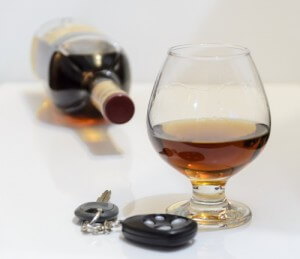How BAC Increases Are Reflected in Behaviors and/or Appearance

Common Signs of Impairment by BAC Level
In general, when a person’s BAC rises to:
- 0.02 – Reasonable judgment begins to deteriorate, and signs of lowered inhibitions start to arise.
- 0.03 to 0.04 – The appearance is generally more relaxed, some motor impairment may be displayed, and driving habits may become sloppier.
- 0.05 to 0.09 – Responsiveness and reaction times are obviously delayed, attentiveness and alertness is visibly deteriorated, and behaviors are generally amplified.
- 0.10 to 0.14 – Coordination, judgement and muscle control is obviously impaired, and reaction times are significantly delayed. At this point, there may be a number of other obvious signs that someone is having difficulties functioning “normally.”
- 0.15 to 0.19 – Difficulties speaking and seeing, as may be evidenced by slurring and/or squinting/excessive blinking. At these BAC levels, people may also have serious coordination issues and/or difficulties carrying on conversations.
- 0.20+ – Blackouts and/or loss of consciousness can occur.
Of course, these signs can vary, according to people’s tolerance levels, the rate at which their bodies process alcohol, whether they have also consumed drugs, etc.
BACs & Impairment: More Important Info
- Police look for these signs of impairment in DUI stops – And when they notice any of these signs, they will usually have probable cause to request that a driver submit to field sobriety testing and/or BAC testing.
- And possibly after traffic accidents – And with traffic crashes, police will not need probable cause to request that drivers submit to BAC testing, as the crash itself can serve as probable cause for this screening.
- Signs of impairment may not always be what they seem – Although the above descriptions can be signs of impairment, it is important to realize that these “signs” can also be related to other factors – like medical conditions. This can be valuable to point in DUI cases.
Contact a Colorado Springs DUI Lawyer at Kohn Law Firm
If you have been charged with drunk driving in Colorado, a Colorado Springs DUI lawyer at Kohn Law Firm is ready to aggressively defend your rights and help you bring your case to a successful resolution.
To learn more about how we can help you, set up a free initial consultation with us by calling us at (719) 328-9555 or by emailing us using the contact form at the top of this page. From our offices in Colorado Springs, we represent clients throughout the Pikes Peak region and Colorado.
NEED LEGAL HELP?
Contact Us Now!
